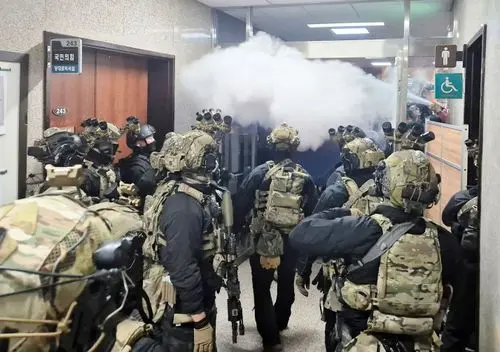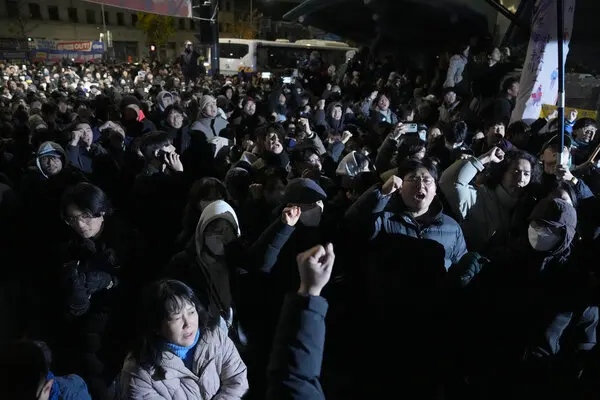President Yoon Suk Yeol abruptly reversed his martial law declaration Wednesday morning, less than 24 hours after imposing it, following unanimous rejection from lawmakers and widespread public outcry in South Korea’s most significant political crisis in decades.

The dramatic reversal came after the National Assembly roundly rejected Yoon’s decree, which had attempted to restrict political activity and impose media censorship under the guise of combating “anti-state forces.” Yonhap news agency reported the cabinet agreed early Wednesday to withdraw the martial law order.
“We won!” protesters chanted outside the National Assembly, where demonstrators celebrated the decision with drumming and applause.
The main opposition Democratic Party escalated pressure on Yoon, who has served since 2022, calling for his resignation or impeachment. “Even if martial law is lifted, he cannot avoid treason charges,” senior Democratic Party lawmaker Park Chan-dae said in a statement. “It was clearly revealed to the entire nation that President Yoon could no longer run the country normally. He should step down.”

“South Korea as a nation dodged a bullet, but President Yoon may have shot himself in the foot,” said Danny Russel, vice president of the Asia Society Policy Institute think tank.
Financial markets showed immediate relief, with the South Korean won recovering from a two-year low against the dollar, while exchange-traded funds linked to South Korean stocks reduced earlier losses.



